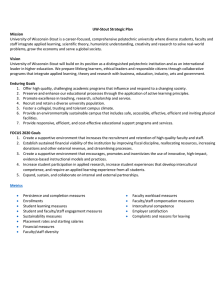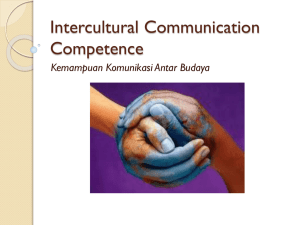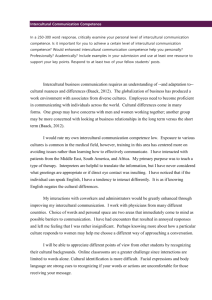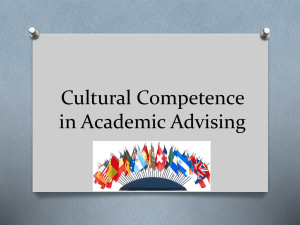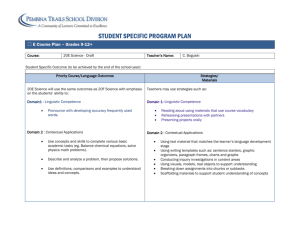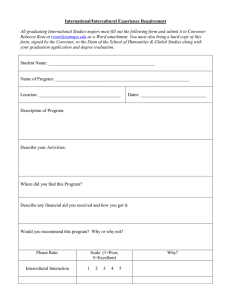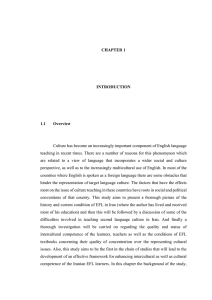Document 13317335
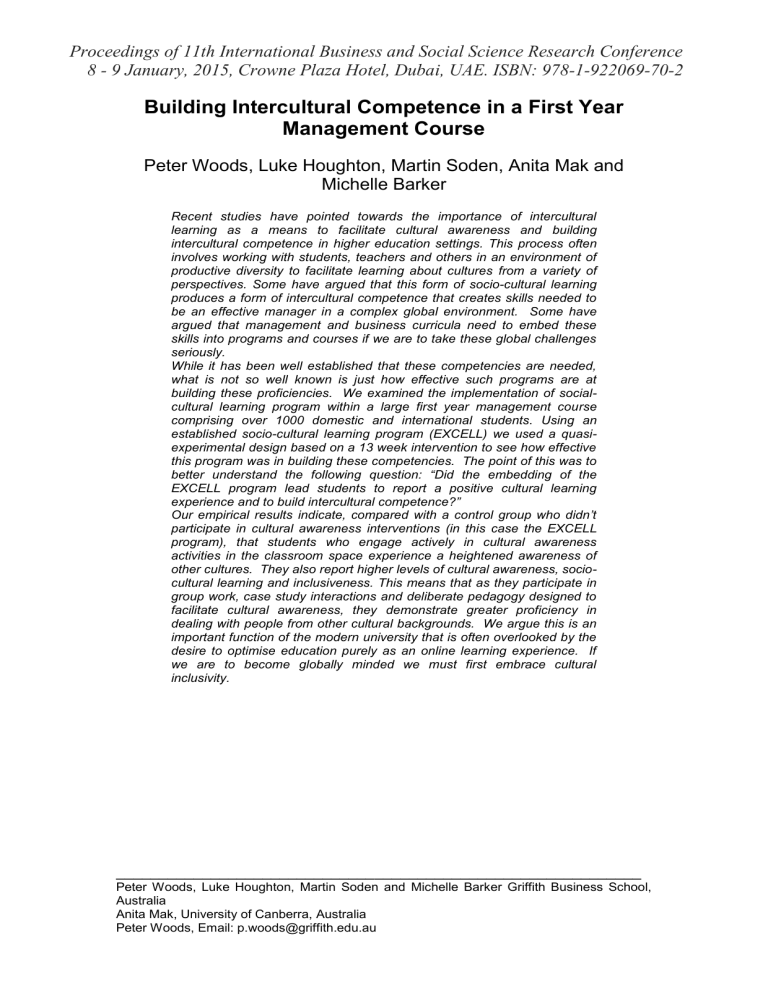
Proceedings of 11th International Business and Social Science Research Conference
8 - 9 January, 2015, Crowne Plaza Hotel, Dubai, UAE. ISBN: 978-1-922069-70-2
Building Intercultural Competence in a First Year
Management Course
Peter Woods, Luke Houghton, Martin Soden, Anita Mak and
Michelle Barker
Recent studies have pointed towards the importance of intercultural learning as a means to facilitate cultural awareness and building intercultural competence in higher education settings. This process often involves working with students, teachers and others in an environment of productive diversity to facilitate learning about cultures from a variety of perspectives. Some have argued that this form of socio-cultural learning produces a form of intercultural competence that creates skills needed to be an effective manager in a complex global environment. Some have argued that management and business curricula need to embed these skills into programs and courses if we are to take these global challenges seriously.
While it has been well established that these competencies are needed, what is not so well known is just how effective such programs are at building these proficiencies. We examined the implementation of socialcultural learning program within a large first year management course comprising over 1000 domestic and international students. Using an established socio-cultural learning program (EXCELL) we used a quasiexperimental design based on a 13 week intervention to see how effective this program was in building these competencies. The point of this was to better understand the following quest ion: “Did the embedding of the
EXCELL program lead students to report a positive cultural learning experience and to build intercultural competence ?”
Our empirical results indicate, compared with a control group who didn’t participate in cultural awareness interventions (in this case the EXCELL program), that students who engage actively in cultural awareness activities in the classroom space experience a heightened awareness of other cultures. They also report higher levels of cultural awareness, sociocultural learning and inclusiveness. This means that as they participate in group work, case study interactions and deliberate pedagogy designed to facilitate cultural awareness, they demonstrate greater proficiency in dealing with people from other cultural backgrounds. We argue this is an important function of the modern university that is often overlooked by the desire to optimise education purely as an online learning experience. If we are to become globally minded we must first embrace cultural inclusivity.
_____________________________________________________________
Peter Woods, Luke Houghton, Martin Soden and Michelle Barker Griffith Business School,
Australia
Anita Mak, University of Canberra, Australia
Peter Woods, Email: p.woods@griffith.edu.au
